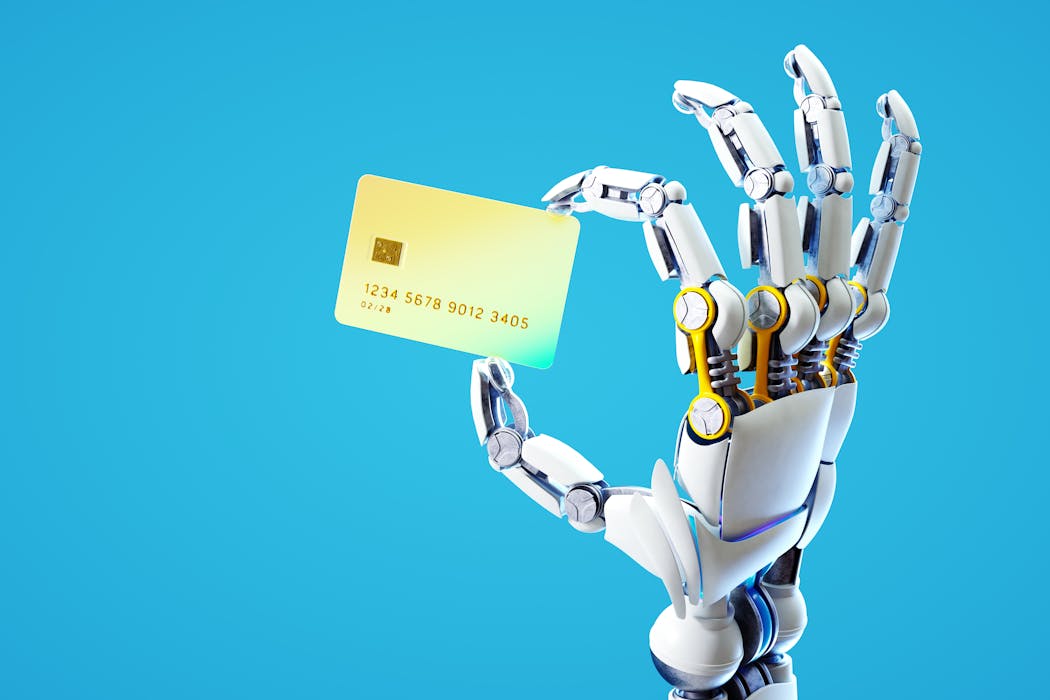OpenAI slipped shopping into 800 million ChatGPT users’ chats − here’s why that matters
- Written by Yuanyuan (Gina) Cui, Assistant Professor of Marketing, Coastal Carolina University

Your phone buzzes at 6 a.m. It’s ChatGPT: “I see you’re traveling to New York this week. Based on your preferences, I’ve found three restaurants near your hotel. Would you like me to make a reservation?”
You didn’t ask for this. The AI simply knew your plans from scanning your calendar and email and decided to help. Later, you mention to the chatbot needing flowers for your wife’s birthday. Within seconds, beautiful arrangements appear in the chat. You tap one: “Buy now.” Done. The flowers are ordered.
This isn’t science fiction. On Sept. 29, 2025, OpenAI and payment processor Stripe[1] launched the Agentic Commerce Protocol[2]. This technology lets you buy things instantly from Etsy within ChatGPT conversations. ChatGPT users are scheduled to gain access to over 1 million other Shopify merchants, from major household brand names to small shops as well.
As marketing researchers[3] who study[4] how AI affects consumer behavior[5], we believe we’re seeing the beginning of the biggest shift in how people shop since smartphones arrived. Most people have no idea it’s happening.
OpenAI’s ChatGPT takes on e-commerce with Etsy, Shopify partnership.From searching to being served
For three decades, the internet has worked the same way: You want something, you Google it, you compare options, you decide, you buy. You’re in control.
That era is ending.
AI shopping assistants are evolving through three phases. First came “on-demand AI.” You ask ChatGPT a question, it answers. That’s where most people are today.
Now we’re entering “ambient AI,” where AI suggests things before you ask[6]. ChatGPT monitors your calendar, reads your emails and offers recommendations without being asked.
Soon comes “autopilot AI,” where AI makes purchases for you with minimal input from you. “Order flowers for my anniversary next week.” ChatGPT checks your calendar, remembers preferences, processes payment and confirms delivery.
Each phase adds convenience but gives you less control.
The manipulation problem
AI’s responses create what researchers call an “advice illusion.” When ChatGPT suggests three hotels, you don’t see them as ads. They feel like recommendations from a knowledgeable friend. But you don’t know whether those hotels paid for placement or whether better options exist that ChatGPT didn’t show you.
Traditional advertising is something most people have learned to recognize and dismiss[7]. But AI recommendations feel objective even when they’re not. With one-tap purchasing, the entire process happens so smoothly that you might not pause to compare options.
OpenAI isn’t alone in this race. In the same month, Google announced its competing protocol, AP2[8]. Microsoft, Amazon and Meta are building similar systems. Whoever wins will be in position to control how billions of people buy things, potentially capturing a percentage of trillions of dollars in annual transactions.
What we’re giving up
This convenience comes with costs most people haven’t thought about.
Privacy: For AI to suggest restaurants, it needs to read your calendar and emails. For it to buy flowers, it needs your purchase history. People will be trading total surveillance for convenience.
Choice: Right now, you see multiple options when you search. With AI as the middleman, you might see only three options ChatGPT chooses. Entire businesses could become invisible if AI chooses to ignore them.
Power of comparing: When ChatGPT suggests products with one-tap checkout, the friction that made you pause and compare disappears.
It’s happening faster than you think
ChatGPT reached 800 million weekly users[9] by September 2025, growing four times faster than social media platforms did. Major retailers began using OpenAI’s Agentic Commerce Protocol within days of its launch.
History shows people consistently underestimate how quickly they adapt to convenient technologies. Not long ago most people wouldn’t think of getting in a stranger’s car. Uber now has 150 million users[10].
Convenience always wins. The question isn’t whether AI shopping will become mainstream. It’s whether people will keep any real control over what they buy and why.
What you can do
The open internet gave people a world of information and choice at their fingertips. The AI revolution could take that away. Not by forcing people, but by making it so easy to let the algorithm decide that they forget what it’s like to truly choose for themselves. Buying things is becoming as thoughtless as sending a text.
In addition, a single company could become the gatekeeper for all digital shopping, with the potential for monopolization beyond even Amazon’s current dominance in e-commerce. We believe that it’s important to at least have a vigorous public conversation about whether this is the future people actually want.
Here are some steps you can take to resist the lure of convenience:
Question AI suggestions. When ChatGPT suggests products, recognize you’re seeing hand-picked choices, not all your options. Before one-tap purchases, pause and ask: Would I buy this if I had to visit five websites and compare prices?
Review your privacy settings carefully. Understand what you’re trading for convenience.
Talk about this with friends and family. The shift to AI shopping is happening without public awareness. The time to have conversations about acceptable limits is now, before one-tap purchasing becomes so normal that questioning it seems strange.
The invisible price tag
AI will learn what you want, maybe even before you want it. Every time you tap “Buy now” you’re training it – teaching it your patterns, your weaknesses, what time of day you impulse buy.
Our warning isn’t about rejecting technology. It’s about recognizing the trade-offs. Every convenience has a cost. Every tap is data. The companies building these systems are betting you won’t notice, and in most cases they’re probably right.
References
- ^ Stripe (stripe.com)
- ^ Agentic Commerce Protocol (openai.com)
- ^ marketing researchers (scholar.google.com)
- ^ who study (scholar.google.com)
- ^ AI affects consumer behavior (doi.org)
- ^ AI suggests things before you ask (openai.com)
- ^ learned to recognize and dismiss (doi.org)
- ^ competing protocol, AP2 (www.forbes.com)
- ^ 800 million weekly users (openai.com)
- ^ 150 million users (www.statista.com)
Authors: Yuanyuan (Gina) Cui, Assistant Professor of Marketing, Coastal Carolina University





